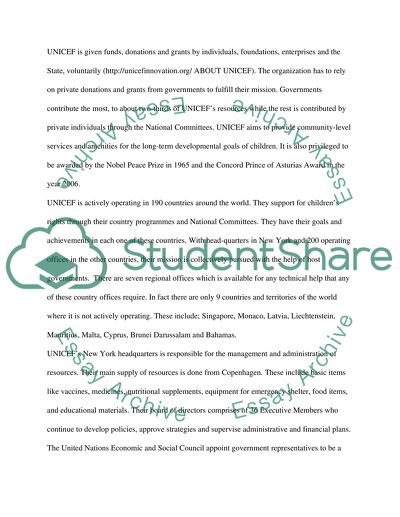Cite this document
(“UNICEF Essay Example | Topics and Well Written Essays - 3000 words”, n.d.)
Retrieved from https://studentshare.org/humanitarian/1422137-unicef
Retrieved from https://studentshare.org/humanitarian/1422137-unicef
(UNICEF Essay Example | Topics and Well Written Essays - 3000 Words)
https://studentshare.org/humanitarian/1422137-unicef.
https://studentshare.org/humanitarian/1422137-unicef.
“UNICEF Essay Example | Topics and Well Written Essays - 3000 Words”, n.d. https://studentshare.org/humanitarian/1422137-unicef.


